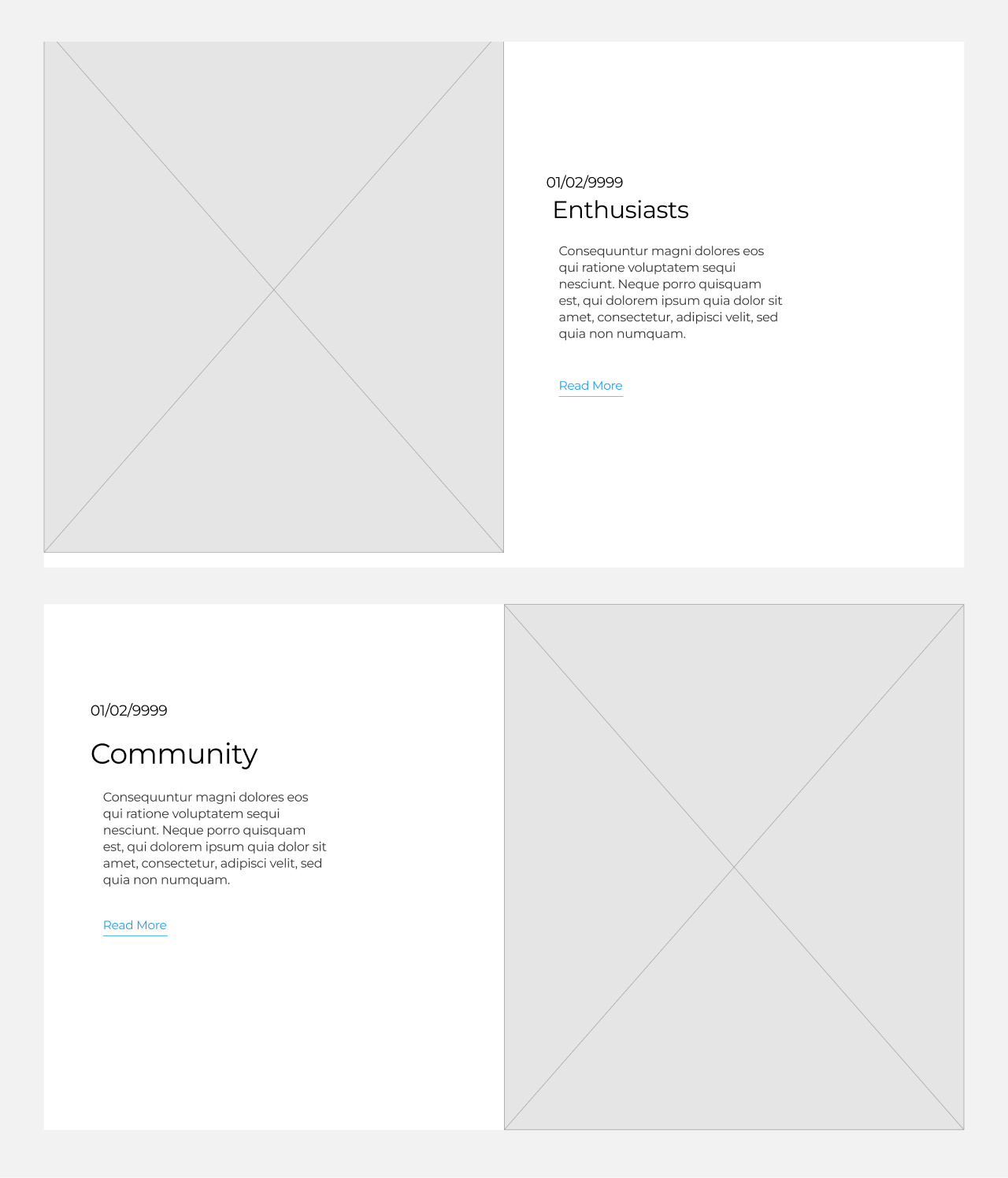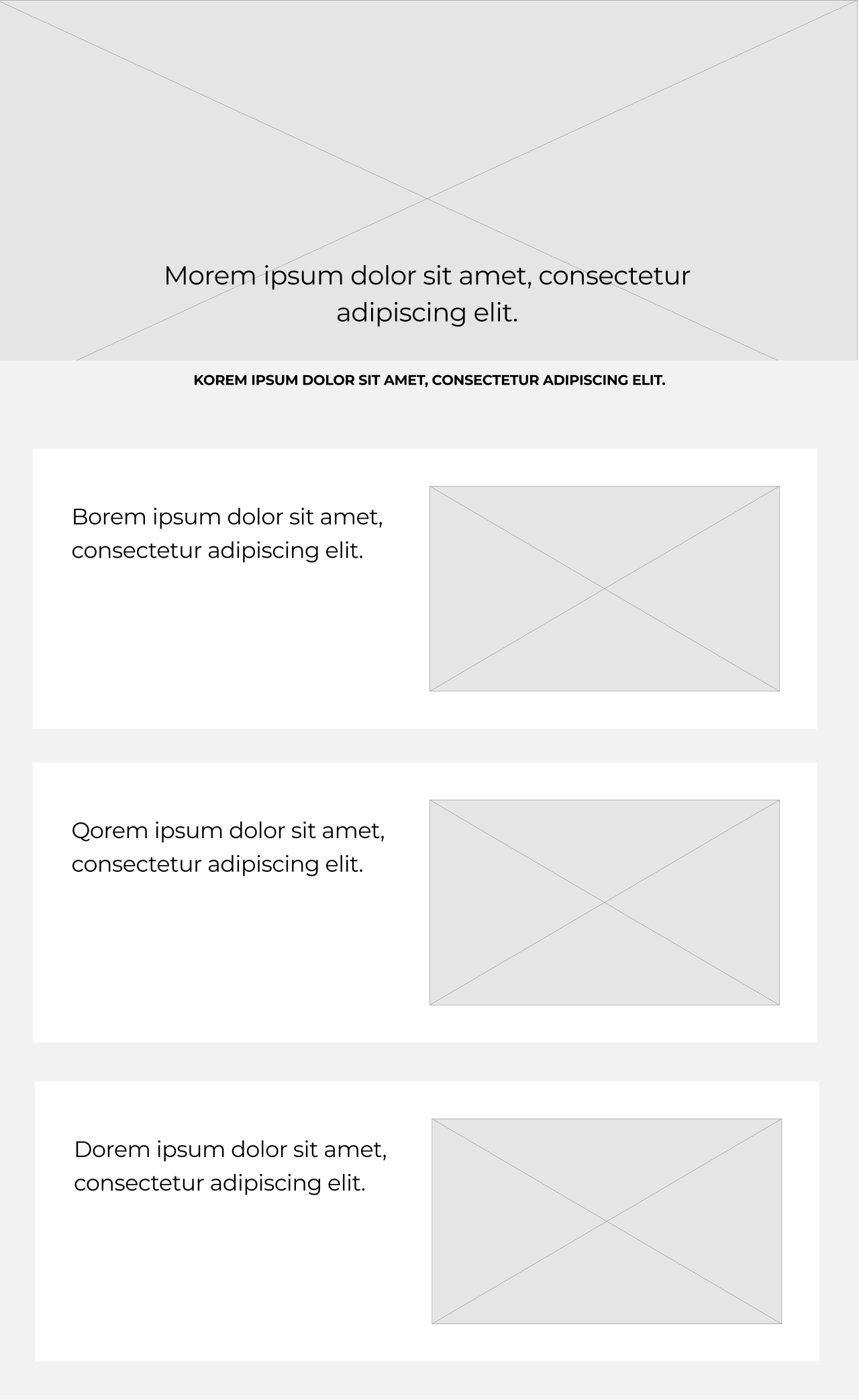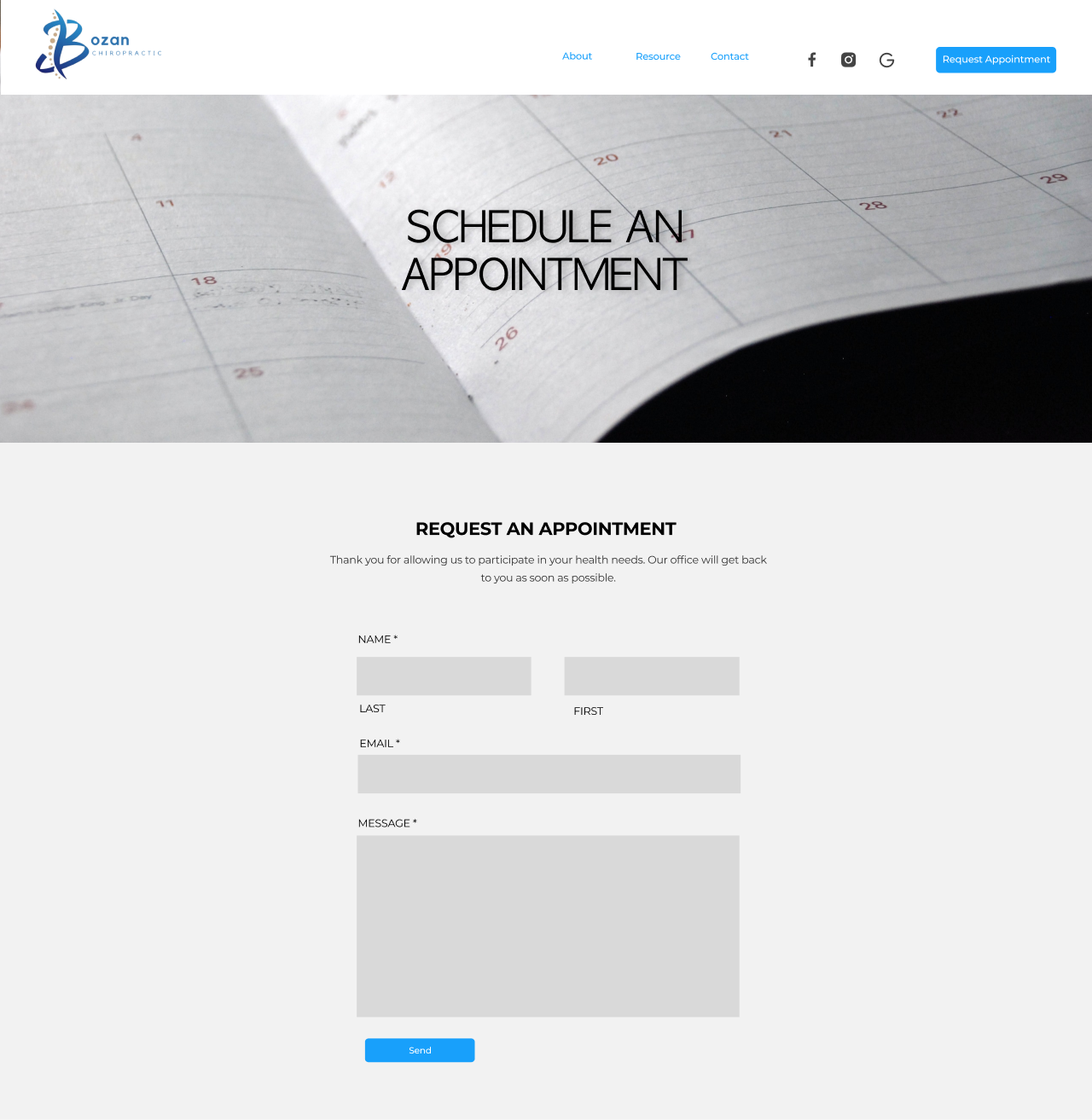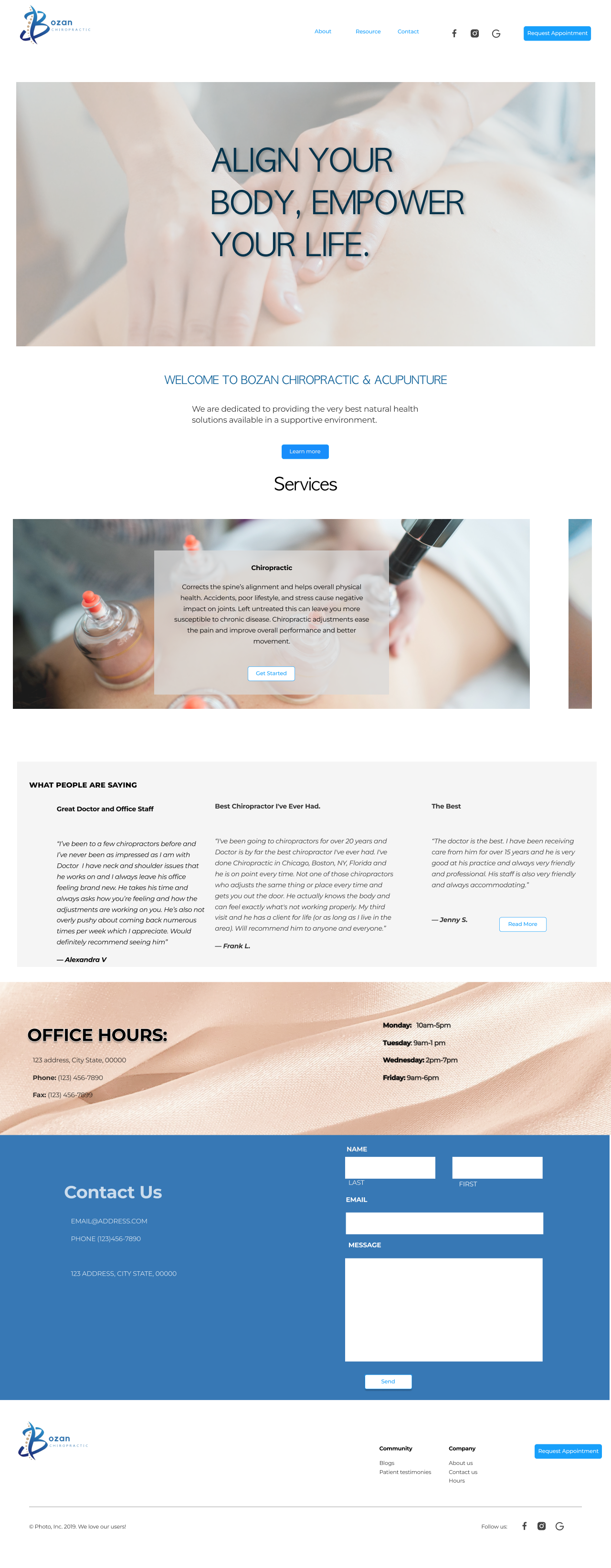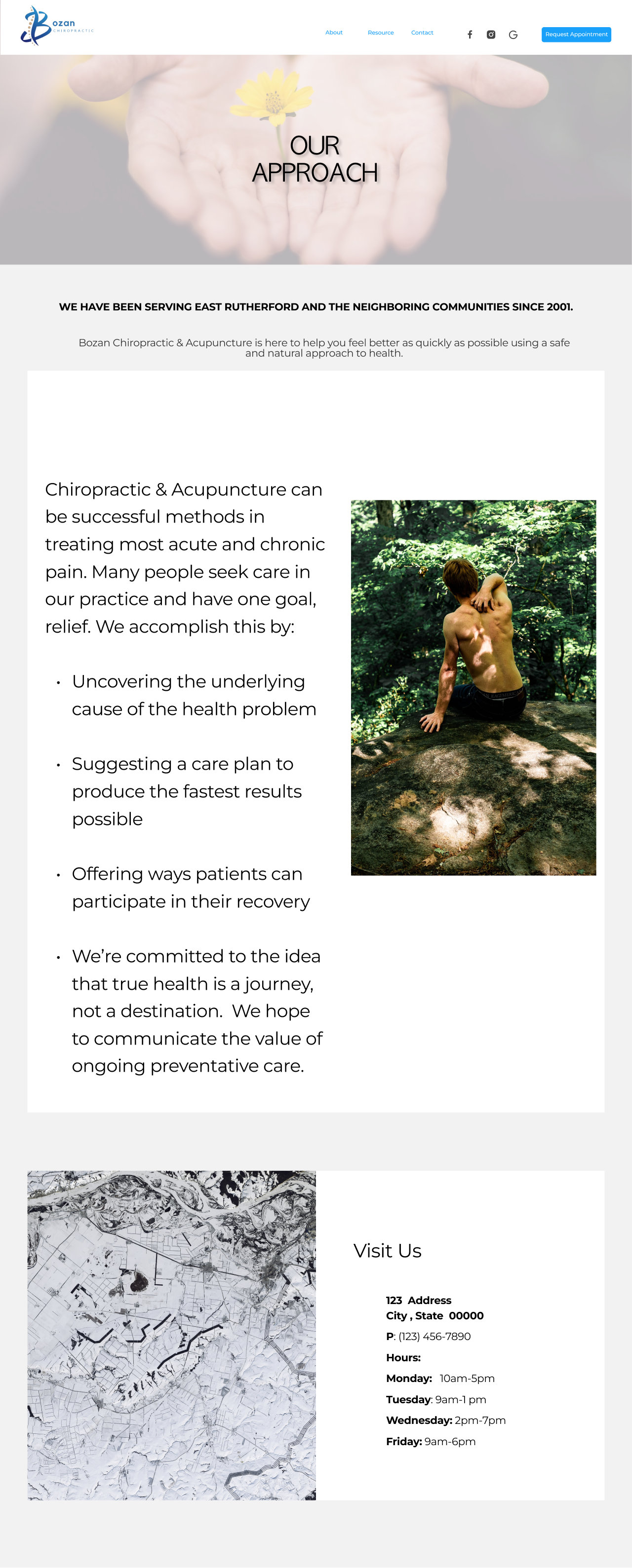Boosting patient engagement and online appointments
Bozan Chiropractic, a trusted clinic with over 20 years of service in New Jersey, sought to transform its digital presence. With COVID-19 reshaping healthcare engagement, their traditional reliance on word-of-mouth referrals was no longer sufficient. They needed a website.
This case study captures the journey of redesigning their website to achieve these goals while balancing user needs and budget constraints.
ROLE: UX Researcher, Visual Design, Digital Marketing, Branding
DURATION: 2 Months
INDUSTRY: Healthcare
CLIENT: Bozan Chiropractic
The Diagnosis
A combination of user interviews and heuristic evaluation revealed several pain points
-
Content overwhelmed visitors and obscured key information.
-
Users struggled to locate the appointment booking feature, leading to drop-offs.
-
Misinformation about offered services eroded trust.
-
Poor navigation and inconsistent UI disrupted the user journey.
The Treatment Plan
User-Centered Design Solutions
To address these challenges, I implemented a user-centered approach focused on:
-
A revamped navigation structure ensured users could intuitively find what they needed, whether it was services, clinic information, or the booking feature.
-
Clear, concise content organization allowed users to quickly locate relevant information without feeling overwhelmed.
-
The appointment booking flow was redesigned for clarity and efficiency, encouraging more users to schedule appointments online.
-
Aesthetic improvements and intuitive interactions created a welcoming digital environment, fostering trust and engagement.
Building with Budget Constraints
Given the limited budget, we opted for Squarespace, an affordable and user-friendly website builder. This allowed for rapid prototyping and iterative design updates without incurring high development costs.
Low Fidelity Wireframes
Home Page
Meet the Doctor Page
Scheduling Page
About Page
Blog Page
Services Page
Iterative Testing & Refinement
To ensure the website catered to user needs, I conducted multiple rounds of usability testing with a small group of target patients. Each round focused on specific aspects of the website, allowing for iterative refinement based on their feedback.
Live Testing with Target Users
Live user testing with 4 patients (3 rounds focusing on navigation, IA, usability, booking flow, and visual design) revealed the need for a website overhaul. We identified issues with structure, booking, and visuals. User feedback guided iterative refinements, resulting in a significantly more user-friendly experience.Round 1
Navigation & Information Architecture
Task
Users were given specific tasks to complete, such as finding information about a particular service or locating clinic contact details.
finding
Users struggled with the menu structure and locating key pages
changes made
Restructured the navigation menu for better clarity and implemented a more logical information hierarchy, making it easier for users to locate desired content.
Round 2
Appointment Booking Flow
Task
Users were asked to walk through the appointment booking process, simulating scheduling an appointment.
finding
Confusing forms and unclear instructions frustrated users.
changes made
Simplified the booking process by removing unnecessary fields and adding step-by-step instructions.
Round 3
Visual Design & Readability
Task
Users were presented with the website prototype and asked to evaluate its visual design and information clarity.
finding
Low contrast and small font sizes hindered readability; the design lacked engaging visuals.
changes made
Increased font size and contrast, added high-quality images, and updated the color scheme for a modern, professional look.
High Fidelity Wireframes
Home Page
Scheduling Page
Meet the Doctor Page
About Page
Blog Page
Services Page
The Impact
The redesigned website delivered measurable improvements
40% Increase in online appointment bookings within the first month.
Significant Reduction in user drop-off rates during the booking process.
Higher user retention and positive feedback on the new design.
FUTURE ROADMAP
-
USER CONVENIENCE
Calendar-based appointment scheduling.
Automated reminders to reduce no-shows.
-
Empowering Patients
Settings page for managing preferences.
A long-term goal to build a secure patient portal.
-
Content Strategy
Regular updates to keep the site fresh and relevant.







